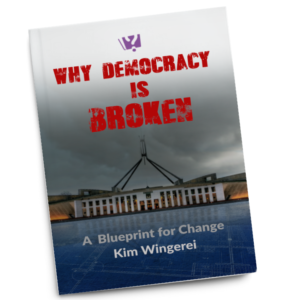The Productivity Commission is inquiring into Australia’s Data and Digitial Dividend.
I have made a submission on ‘Investing in Regional Digital Infrastructure’ and below are my introductory remarks to the commission’s public hearing held on 7 November 2022.
The commission’s interim report can be found here.
My submission can be found here.
Thank you for the opportunity to discuss my submission to this inquiry.
My submission focussed on the ‘Investing in Regional Digital Infrastructure’ of the commission’s interim report on the Digital and Data Dividend.
By way of introduction, I have had a long career in telecommunications in Australia and overseas. I was the initial Chief Technology Officer at NBN Co from 2009 to 2014 and also had a similar role in Hong Kong for a local fibre broadband company from 2015 to 2019. I am now a consultant for Hardiman Telecommunications who provide advice and due diligence on mergers and acquisitions in telecommunications in Asia, Europe and Africa.
In its report, the Productivity Commission has highlighted one of the most significant problems in Australia’s telecommunications industry – namely the inefficient and ad hoc nature of funding the necessary ongoing investment in Australia’s regional telecommunications infrastructure.
Unlike in urban and regional cities, investment in regional telecommunications is in many cases uneconomic – the returns on investments make it unattractive without some form of government subsidy. In Australia, this is especially the case given the low population density – even though regional Australia is a source of much of Australia’s economic wealth.
Despite this obvious problem, Australia’s telecommunications policies have always struggled to come up with a sustainable long-term policy for investment in regional telecommunications.
Instead, the investment decisions have been hidden behind state-owned monopolies (the Post Master General’s department, Telecom Australia, and now NBN Co) with minimal transparency and mainly in response to political rather than economic drivers.
In my 9-page formal submission, I fully support the Commission’s suggestion for a competitive, market-based mechanism to deliver a more efficient way of delivering the Universal Service Guarantee.
However, in my opinion, this does not go far enough.
To create a competitive, market-based mechanism it is necessary to have a long-term sustainable funding arrangement in place to ensure that an efficient market can develop for investing in infrastructure and servicing regional Australia.
My submission highlights that approximately $1 billion per year of subsidies are currently being plowed into regional broadband infrastructure. Approximately half of these subsidies are via industry levies such as the 1990s era USO and the more recent Regional Broadband Scheme. The other half is from a range of ad hoc federal and state government grants to schemes such as the Regional Blackspot Program, Regional Connectivity Program, and other specific initiatives.
The Regional Broadband Scheme, with funding of $417 million, is a particularly narrowly cast burden that is only imposed on high-speed broadband providers such as NBN Co and a small number of its competitors. In my opinion, this scheme, along with other regulatory arrangements, was imposed to protect NBN Co from competition in the hope a monopoly would result along the lines of the old Telecom Australia monopoly for fixed telephony.
A more efficient and effective funding scheme is needed for regional Australia that covers fixed, mobile and satellite infrastructure. I have suggested for some time that all of the current funding arrangements should be replaced by a centrally managed fund that promotes efficiency, using competition where possible, to ensure Australia’s regional broadband services do not fall inexorably behind those of urban services.
A levy of 2.5% on all of Australia’s telecommunication retail services (a market of approximately $40 billion) would raise the $1 billion per annum that is currently being spent in the ad hoc manner mentioned earlier. A centralised fund managed by an existing government agency or a new agency should be tasked with obtaining the most efficient and effective outcomes for regional Australia using the proceeds of such a levy.
In the days of the Telecom Australia monopoly, the government relied on engineers and accountants to manage the implicit cross-subsidy necessary to fund investment in the universal telephone service. This was also the plan with the hopeful re-incarnation of the supposed fixed broadband monopoly under NBN Co.
However, the inevitable onward march of technology is threatening the NBN Co fixed monopoly as the mobile operators begin to offer equivalent services using 5G. The ‘cherry-picking’ of urban customers by these operators will see NBN Co’s internal funding mechanism break down – requiring ever more government funding.
As a result, NBN Co should also be funded from this universal retail funding levy – but only to the extent, it is the most efficient service provider.
More effective and efficient investment will improve the economic and social growth prospects for many regional areas – both those that are currently disadvantaged and those that are contributing significantly to overall economic growth.
Furthermore, more efficient investment should also have the objective of improving the resiliency of telecommunications networks in regional areas. Given the increasing disasters to be expected from the effects of climate change, this will help communities respond and adapt more quickly to the changing world around them.
It is important that reforms are made as soon as possible – especially given the review of NBN Co’s Special Access Undertaking that is now underway. Embedded within the draft SAU is the hidden cross-subsidy mentioned earlier. If it is accepted it will be difficult to undo an arrangement that will become more unsustainable as technologies continue to provide more efficient options to service regional Australia.
I would be keen to hear if you have any questions.
The post Sustainable Investment in Regional Broadband – submission to Productivity Commission appeared first on Gary McLaren.


